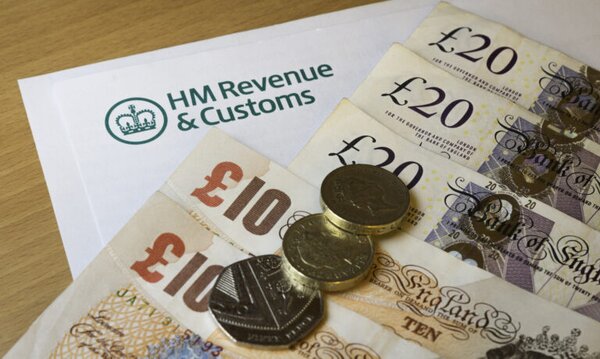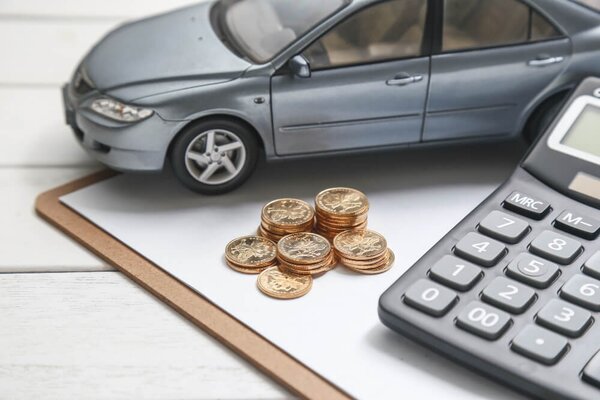Let’s Break This Down Together…
Self Assessment isn’t just for the self-employed. In fact, millions of people across the UK are required to register each year, often without realising it. If you’re earning income that isn’t taxed at source, such as from freelancing, property rental, savings, or overseas earnings, you may be legally required to register with HMRC and complete a tax return.
Failing to register on time can lead to automatic penalties, increasing interest, and long-term financial consequences. HMRC has powerful tools to detect unreported income, and even unintentional non-compliance can result in significant costs.
This guide breaks down exactly who needs to register, what happens if you don’t, and how to fix things if you’ve fallen behind. Whether you're just starting out or catching up, understanding your responsibilities is the first step to staying on the right side of HMRC.
Who Actually Needs to Register for Self Assessment?
Not everyone in the UK needs to register for Self Assessment, but if you have certain types of income, it’s essential to check if you’re required to do so. You must register for Self Assessment if you have taxable income that isn’t taxed at source, this includes income from self employment as a sole trader, profits from renting out property, or significant savings interest that exceeds your personal savings allowance.
You’ll also need to register if you receive income from abroad, have capital gains to report, or if you’re a company director (unless it’s for a non-profit organisation and you have no taxable income). High earners, such as those with income over £100,000, and anyone who needs to claim certain tax reliefs or allowances, should also check if they need to register for Self Assessment.
If you’re unsure, review HMRC’s guidelines or use their online tool to see if you need to register for self assessment. Missing the requirement to register can result in a late filing penalty, even if you didn’t realise you needed to file. It’s always better to check early and avoid unnecessary penalties for late filing or unreported income.
What Actually Happens When You Miss Self Assessment Registration?
The moment you miss your Self Assessment registration deadline, HMRC’s penalty system kicks in. You’ll immediately face a £100 fixed penalty – even if you don’t owe any tax.
This is just the beginning. The longer you remain unregistered, the worse it gets.
After three months, HMRC can charge you £10 for each day you haven’t registered, up to a maximum of £900. That’s on top of the initial £100. These penalties are calculated based on how long you remain unregistered and the amount of tax owed.
You’ll still be liable for all taxes owed during this period. Interest starts building from the original due date. You are still required to file a tax return for each relevant year, even if you missed the registration deadline.
HMRC has impressive powers to look back through your financial history. They can potentially investigate up to 20 years if they suspect deliberate non-compliance. Late or missing assessment tax returns can trigger further scrutiny.
For example, if you miss the registration deadline and fail to file a tax return, penalties can quickly escalate as daily fines accumulate and HMRC may estimate your tax bill, increasing your overall liability.
The Financial Pain Gets Worse Over Time
After the initial penalties, things get even more expensive. If you remain unregistered for six months, HMRC adds another penalty, either 5% of the tax due or £300, whichever is greater. Penalties are calculated based on the amount of tax owed and how long it remains unpaid.
Stay unregistered for 12 months? Expect another 5% or £300 penalty on top of everything else.
Don’t forget that interest compounds daily on all outstanding amounts. Paying your tax bill and any penalties promptly is crucial to avoid further charges. What started as a manageable tax bill can quickly balloon into a serious financial burden due to missed payments and ongoing interest.
These penalties aren’t negotiable. They’re automatic and applied strictly according to HMRC’s timeline. Missing the self assessment deadline after the tax year ends increases the risk of additional penalties and interest on unpaid tax.
I once helped a client who’d ignored registration for three years. He had not paid the tax owed and missed several payments, which led his original £4,000 tax liability to grow to over £9,000 with penalties and interest.

How HMRC Finds Out You Should Be Registered
Think you’ll fly under HMRC’s radar? Think again. Their sophisticated ‘Connect’ computer system cross-references data from countless sources.
Banks, employers, payment platforms, and property records all feed information to HMRC. This creates a detailed picture of your financial activity.
They receive data from land registry, council tax records, and even social media platforms that might indicate business activity.
Random compliance checks can catch unregistered taxpayers. HMRC also acts on tip-offs from the public.
Many people are surprised when HMRC contacts them about unregistered income. If you have previously registered for Self Assessment, HMRC may already have your unique taxpayer reference on file. Your account activity in HMRC's online services, including your personal tax account, can be used to verify your tax status. The tax authority often knows more about your finances than you might expect.
HMRC's online services and digital accounts, such as the personal tax account, help them track taxpayers' compliance and monitor registration and filing activity.
Long-Term Consequences Beyond Just Penalties
The impact goes beyond immediate financial penalties. Unpaid tax debt can damage your credit rating, making it harder to get mortgages or loans.
Many banks won’t open business accounts for individuals with unresolved tax issues, and unresolved tax issues can also affect your business tax account status.
Some contracts, especially government ones, require proof of tax compliance. This means unregistered taxpayers miss out on opportunities.
For persistent non-compliance, HMRC can take legal action. Accumulating points for missed self-assessment deadlines can eventually lead to monetary penalties, and this includes bankruptcy proceedings if your tax debts spiral out of control.
The stress of knowing you’re not compliant shouldn’t be underestimated. Tax unpaid can result in ongoing legal and financial consequences. It’s an unwelcome cloud hanging over your financial life.
What Are the Tax Return Requirements?
Once you’re registered for Self Assessment, you’ll need to complete and submit a tax return to HMRC by the assessment deadline, usually 31 January following the end of the tax year. Your tax return must include all your taxable income, whether from self employment, property, savings, or other sources. You’ll also need to claim any allowances or reliefs you’re entitled to, and calculate your tax liability for the year.
If you’re self employed, you’ll fill out the self-employment section of the tax return, detailing your business income and allowable expenses. If you have rental income, you’ll need to complete the property section, reporting your rental profits and any related costs. Keeping accurate records throughout the tax year makes completing your tax return much easier and helps ensure you claim everything you’re entitled to.
Don’t forget: the assessment deadline for online tax returns is 31 January, while paper returns must be filed by 31 October. Missing these deadlines can result in penalties, so it’s important to complete your tax return on time. If you’re unsure about any part of the process, consider seeking professional advice to make sure your tax return is accurate and complete.

How To Fix Things If You've Failed To Register
If you’ve missed registration, don’t panic, but do act quickly. Register for Self Assessment immediately through HMRC’s online service. You can register by completing an online form on HMRC's website.
Be completely honest about why you’re registering late. HMRC is more lenient with those who come forward voluntarily than those they have to chase.
Gather all your financial records for the relevant tax years. Bank statements, invoices, and receipts will help show your income and expenses. You will need these records to complete your assessment tax returns for the relevant years.
Consider using HMRC’s disclosure facilities like the Let Property Campaign if you have rental income that hasn’t been declared.
Getting professional tax advice at this stage can be worth every penny. Experts can help negotiate with HMRC and potentially reduce penalties. If you receive a penalty, you can submit an appeal form to HMRC, and late appeals may be considered if you have a valid reason. Appeals must be supported by evidence and submitted within the specified timeframe.
Excuses HMRC Might Actually Accept
HMRC does recognise that life sometimes gets in the way of tax compliance. They may accept serious illness as a reasonable excuse for late registration.
A hospital stay or the death of a close relative might also be considered valid reasons for delay. You must have a valid reason for late registration or filing if you want HMRC to waive or appeal any penalties.
If you can prove you tried to register but HMRC’s online systems were down, that’s generally accepted as a reasonable excuse.
Natural disasters or severe events that prevented you from registering might be considered.
Evidence that HMRC gave you incorrect advice directly could also help your case. However, third-party advice (even from accountants) usually won’t qualify.
When to Seek Professional Help
Navigating the Self Assessment system can be straightforward for some, but if your tax affairs are complex or you’re unsure about any aspect of your tax return, it’s wise to seek professional help. A tax professional can guide you through completing your self assessment tax return, help you understand your tax liability, and ensure you’re claiming all the reliefs and allowances you’re entitled to.
Professional advice is especially valuable if you have multiple sources of income, overseas assets, or if you’ve received a penalty notice from HMRC. An expert can help you appeal penalties if you have a reasonable excuse, and can also assist with late filing penalties or late payment penalties to minimise your costs. They’ll make sure your tax return is filed correctly and on time, helping you avoid further penalties and interest.
If you’re facing a large tax bill, have missed the assessment deadline, or simply want peace of mind that your assessment tax return is accurate, don’t hesitate to reach out for help. It’s always better to get advice early and ensure your tax affairs are in order, rather than risk further penalties or complications down the line.

Final Thoughts
Not registering for Self Assessment is like ignoring a small leak in your roof. It might seem minor at first, but the damage gets worse over time.
HMRC has become increasingly efficient at identifying those who should be registered. It's almost inevitable that they'll catch up with you eventually.
The good news is that fixing the situation promptly can minimise the damage. Most people find HMRC reasonable when they voluntarily come forward.
Remember that tax obligations don't simply vanish if ignored. They grow larger with interest and penalties attached.
Simplifying Self Assessment Tax
Starting your Self Assessment journey can feel overwhelming. Our app provides real-time tax calculations as you input your income and expenses. This gives you clarity on your tax position throughout the year.
Why not explore how Pie could help keep your tax affairs in perfect order and give you peace of mind?











